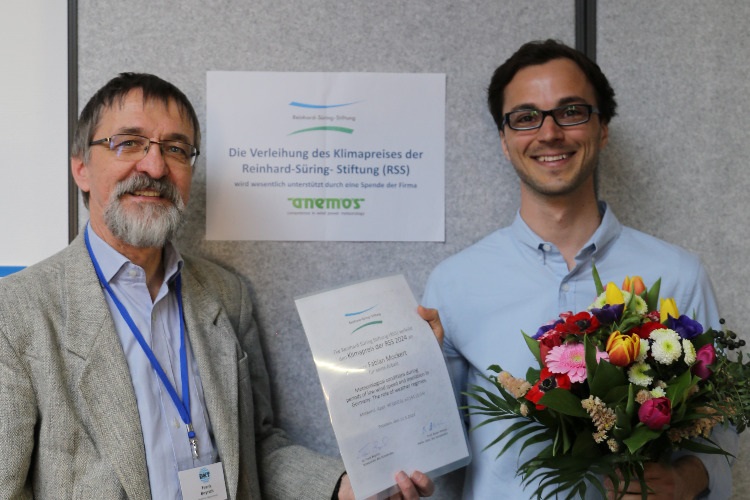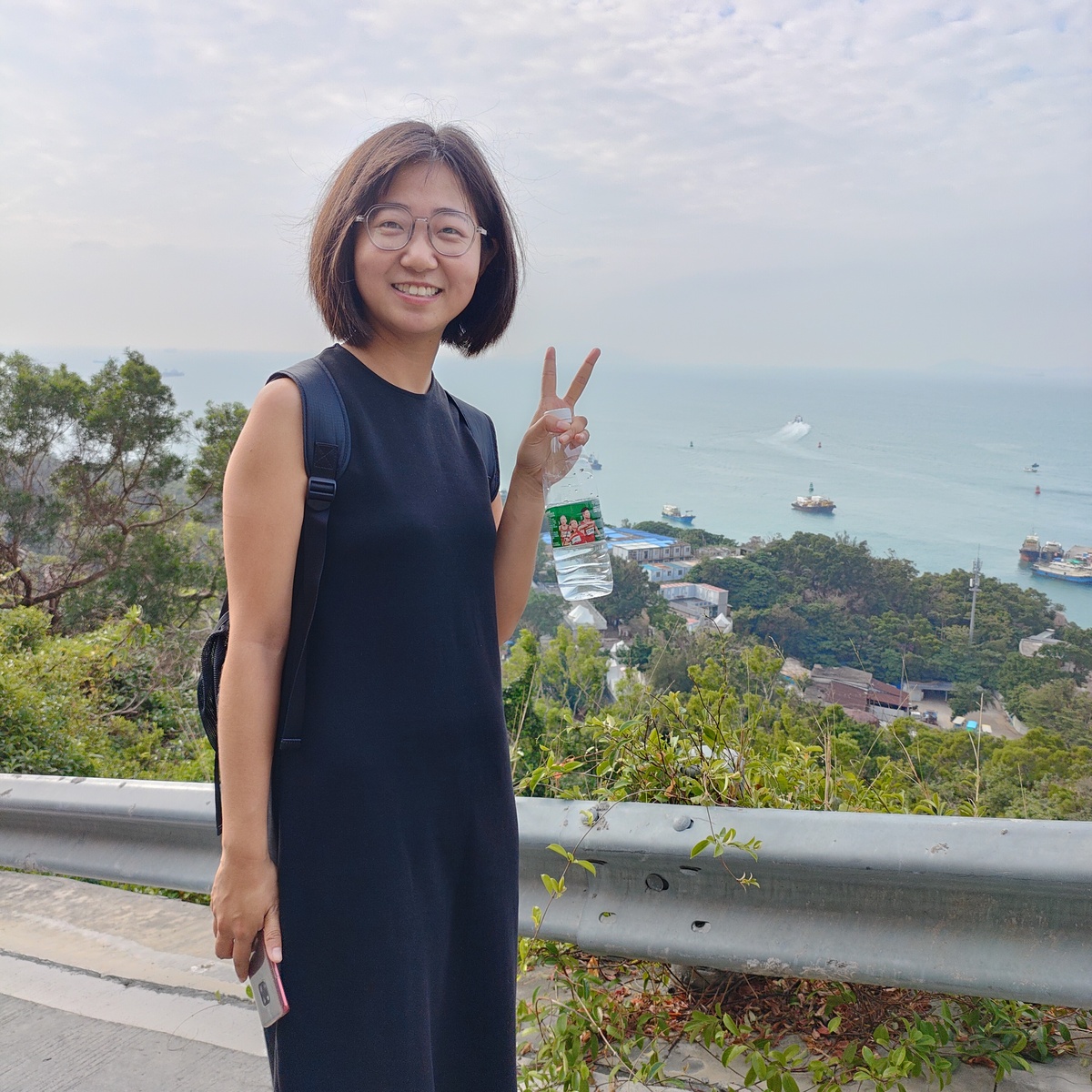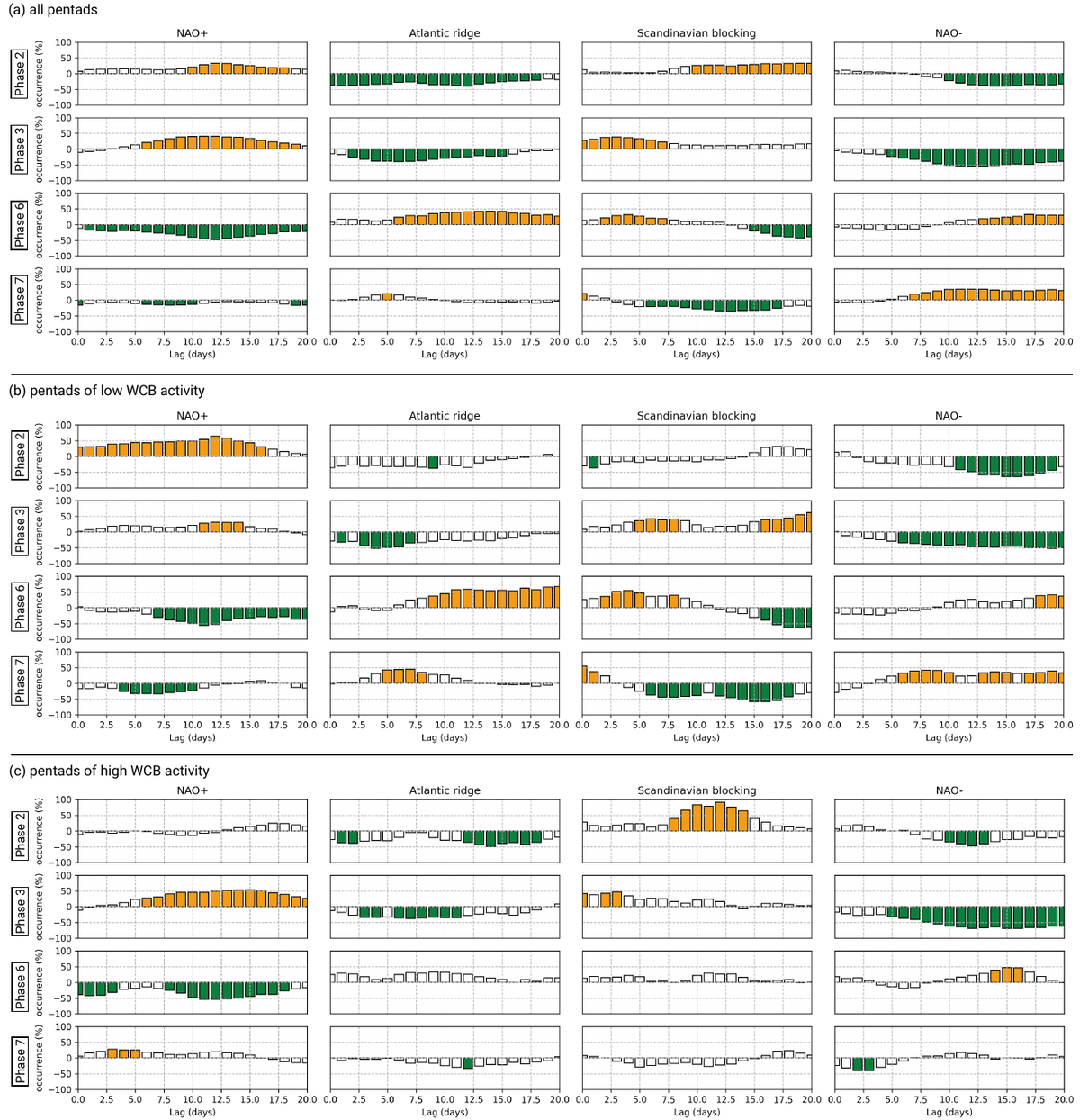26/03/2024 - Welcome Jason Furtado
The “Meteorological Data Science” group warmly welcomes Prof. Jason Furtado (https://ifurtado.org/) from University of Oklahoma. Jason will stay with us for the next three months funded through a KIT International Excellence Fellowship. Jason and his group research the dynamics of different internal modes of variability in the Earth System and how these interact with each other. A particular focus is on the subseasonal time-scale and the role of the stratosphere and ENSO in providing windows of opportunity through teleconnections. During his stay at KIT, Jason and the Meteorological Data Science group will study the forecast skill of subseasonal North American Weather regime predictions and how this skill is affected by modes of variability and midlatitude cyclone activity. We wish Jason a joyful and productive stay in the institute!
23/03/2024 - Fabian Mockert was awarded the Climate Prize of the Reinhard-Süring Foundation
Fabian Mockert was awarded the Climate Prize of the Reinhard-Süring Foundation during the 13th German Climate Conference at the Telegrafenberg in Potsdam. The prize honors his research on Dunkelflauten (a compound event of low wind and solar energy yield) in Germany and their relation with large-scale weather patterns [1]. The meteorological Reinhard-Süring Foundation awards the €1500 prize as part of the triennial German Climate Conference to outstanding young scientists. This year, the prize was awarded in the field of "climatological data for the Energy and Agricultural transition". We would like to congratulate Fabian on this award!
[1] Mockert, F., Grams, C. M., Brown, T., & Neumann, F. (2023). Meteorological conditions during periods of low wind speed and insolation in Germany: The role of weather regimes. Meteorological Applications, 30(4), e2141. https://doi.org/10.1002/met.2141
Further information:
Homepage Fabian Mockert: https://www.imk-tro.kit.edu/14_11644.php
Reinhard-Süring Foundation: https://www.rs-stiftung.org/ (in German)
13th German Climate Conference: https://dkt-13.de/ (in German)
News Article on “Dunkelflauten”: https://www.imk-tro.kit.edu/english/12085.php
05/02/2024 - Welcome Meng Wang
The “Meteorological Data Science” group welcomes Meng Wang as a visiting PhD student. Meng is currently doing her PhD at the School of Atmospheric Sciences, Sun Yat-sen University, China with Professor Xiuzhen Li focusing on the interaction of high- and low-latitude Rossby waves leading to extreme cold-wet weather conditions in South China. During her stay, she will specifically investigate to what extent the excitation of these waves is linked to the large-scale circulation over the North Atlantic. Meng Wang successfully applied for scholarship funded by the China Scholarship Council which will allow her to stay with us for 12 months until January 2025. We look forward to learning about her research and wish her a joyful stay at IMKTRO! If you would like to learn more about cold-wet extremes in South China, please meet Meng at Campus North, Building 435, Room 219.
03/11/2023 - Welcome Bastian Kirsch
We warmly welcome Bastian Kirsch in the WG „Meteorological Data Science“. Bastian grew up near Hamburg where he studied Meteorology focusing on radar meteorology. In 2022, Bastian completed his PhD under the supervision of Prof. Felix Ament and Cathy Hohenegger entitled “Illuminating convective cold pools with a dense station network”. During his PhD Bastian was heavily involved in the FESSTVaL campaign which took place near the Lindenberg observatory. In the coming years, Bastian will bring in this expertise at IMK-TRO to coordinate the “North Atlantic Waveguide, Dry Intrusion and Downstream Impact Campagin (NAWDIC)”. We are very happy to have Bastian in the NAWDIC team and look forward to the campaign preparation and implementation in winter 2025/2026.
20/09/2023 - Welcome Siyu Li
We warmly welcome Siyu Li in the WG „Meteorological Data Science“. Siyu Li completed her BSc at Nanjing University of Information Science and Technology (NUIST) in June 2020 where she evaluated the representation of major sudden stratospheric warming events in the CESM-WACCM. Siyu then moved to Karlsruhe to complete her Master's degree at the IMK. For her Master’s thesis, Siyu joined the working group „Atmospheric risks“ where she developed a machine learning model for hail prediction in Germany. The PhD project will also include machine learning. As part of the project "Advancing subseasonal predictions at reduced computational effort", Siyu will address the question of how short-term forecast errors in the tropics affect the reliability of subseasonal predictions in Central Europe.






